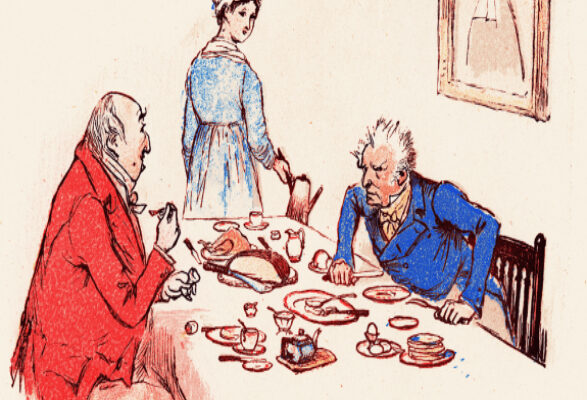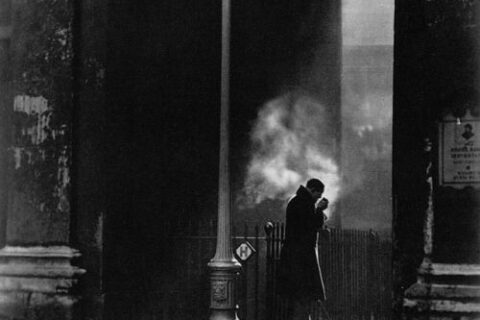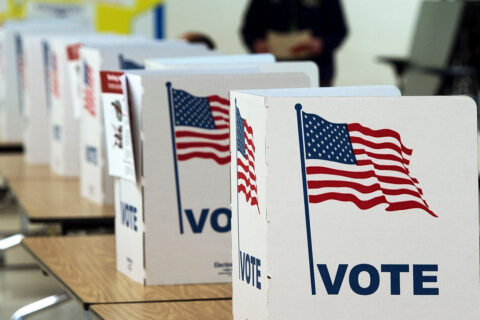Historical Development of the Parties
The Democrats have their roots in the platform Thomas Jefferson ran on, the “Democratic-Republicans.” They started off advocating against the Federalists and the centralization of power. This put them against the national bank, and in favor of agrarianism and self-determination with regards to slavery and its practice. By the time of Andrew Jackson, it had become the Democratic Party. While far less opposed to sweeping action on the part of the executive (particularly under Old Hickory), the Party still defined itself by its commitment to self-determination for states. The Party also found itself advocating for the rights of laborers and opposing industrialization as it developed in the 19th Century.
The Republicans were started sometime around the Civil War and were dedicated to the “Preservation of the Republic,” which was the impetus for their name. Of course, that just meant bringing the South to heel by any means necessary up to, and including, gunpoint and scorched earth. They also supported industrialization, international trade, and contra-labor sentiments. They ultimately descend from the Federalists, although the hodge-podge of parties that came between Federalists and Republicans aren’t worth spilling ink over with the possible exception of the American “Whig” Party. They were primarily defined by their opposition to the retention of power at the level of the states.
Neither of these parties, historically, would have described the United States of America as anything other than a Republic or a Democratic Republic. The Democrats believed in power more concentrated in “the people,” which the Constitution defines as “the States” in the 10th Amendment and the Executive, which is elected by the people through the states. The Republicans wanted more power concentrated in the Congress, particularly after the imposition of the 17th Amendment which robbed states of the ability to select their own senators through the state legislatures.
Today
Democrats, both the elite and the laity, ceaselessly refer to the United States as a “Democracy.” They are particularly apt to refer to it as “our Democracy.” Democracy, to them, is an ideal more than a system of government. This is how they can excoriate populism while endorsing democracy. One might have described Democracy as “egalitarianism” as captured by the French Revolution’s “Liberty, Equality, Fraternity,” but it’s since moved on. Its nearest approximation now could be rendered, “elevate the historically oppressed groups to their rightful places and we will live together in harmony.” The implied threat is, “no justice, no peace.”
The Republican elites also believe in democracy and perpetuate the delusion that this country was founded as, and existed as, a democracy since its inception. “Republic,” as it appears in our national documentation, art, and history is a mere linguistic penchant in which people used to engage. They really meant “Democracy.” Really, it’s synonymous with “Republic,” because there are only three systems of government. We learned from WWII that you either live in a democracy or you live in a communist or fascist dictatorship. Monarchy? See “Fascist Dictatorship.”
However, the Republican base largely believes that we do or should live in a republic and that our government has restrictions and standards that govern it. Public opinion, manufactured or not, creates no justification for the government to forgo its duties or to grant itself excess powers. When the government refuses to enforce its border and uses bureaucratic investigational agencies to harass citizens with views it despises, the government has ceased to be a legitimate republic.
It’s not the old Reaganite idea that boils down to the Left caring about what the government can do for you and the Right being afraid of what the government can do to you. The government has duties and obligations, many of which it ignores or actively circumvents. Less government isn’t always good government. A republic sets up a strict set of duties and limitations dictating what the government must and must not do. Democracies, on the other hand, demand that the government enact whatever the vox populi wishes. In this case, it’s the will of the elite filtered through media organizations telling you that the people want what the elites want.
Although they started out as names with complex histories and nuance, they’ve become their simple matter-of-fact truths. Democrats want democracy. Republicans, the rank-and-file at least, want a republic.






Well concise article.
Corrected my prospective of,
United States politics.
Thank You!
God Bless Dixie!
Sunburn
I agree, So nice to have this author here lately.
I wanted to share a song and album with everybody, that you might like by John Denver, called, Nothing but a breeze, off of his album, seasons of the Heart.
God Bless you Sir
Win!
John Denver’s song writer Joe Henry wrote this on the inside of the CD folder, from Seasons of the Heart.
I passed one who had Slain thousands
And thousands more thronged at his side
And granted him
A life of peace
With pennants waving gaily
Over his lands
And I passed one who had
Saved thousands
And one more came
And sat by his side
And played to him
On an ancient lyre
And kissed his hand
On leave-taking
And the slayer and the Savior were one man
And the thousands
Slain and the
Thousands saved
Were one man
And the throngs who
Attended the first
And the one who
Sang for the last
Were one man
And we are him